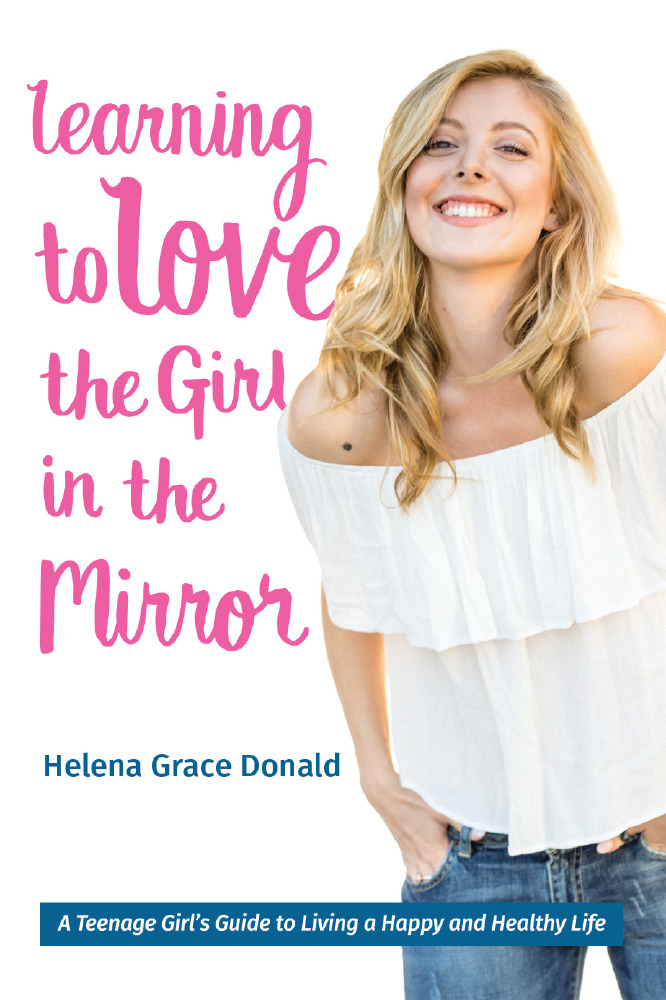When I hear the word “diet”, I’m instantly propelled backwards to the misery of my teenage years - years of restriction, calorie counting, cutting out food groups, weekly weigh ins that quickly became daily weigh-ins and general obsessiveness that became a negative downward spiral leading to bulimia. I’m not suggesting that every teenager that diets will develop an eating disorder, but I’m sure that that every teen with an eating disorder or severe body image issues has dieted. In fact, studies show that adolescent females who severely diet are eighteen times more likely to develop an eating disorder than those who don’t.

Helena Grace Donald
Why is this? Let’s look at what happens to our bodies when we diet to help us understand. When we restrict our calorie intake over a period of time, the part of our brain responsible for our survival thinks there’s not enough food available, so in order to protect us, it slows our metabolism down so that we won’t burn the calories we do consume. As well as that, it secretes large amounts of the hunger hormone into our system to encourage us to eat. So, imagine how the teenage dieter feels when they’ve been dieting for a while and they see that the number on the scales has stopped going down, and they’re feeling so hungry they can think of nothing but food. I know from experience how stressful that is. I wanted to binge on anything I could get my hands on just to feel some relief from all the emotions that were churning inside of me. The relief that breaking the diet brings, however, is very fleeting. First of all, there’s usually a feeling of having failed, which is not a good mindset for any developing young person to get into. And then there’s the misery of stepping onto the scales and seeing that the number has crept up, because our metabolism has slowed down due to the dieting, and our body is not burning up the calories we’ve consumed.
It’s so easy, when this happens, for a young person who is self-conscious about how they look to go into panic mode and start another diet, only for the same thing to happen again and again and, with each cycle of yoyo dieting, the person puts on a little, or a lot, more weight. That’s why teens who diet are three times more likely to be overweight five years on than teens who don’t.
And the negative emotional and psychological effects this can have on the young person can even outweigh the unwanted physical effects. For a growing number of young people, the despair of feeling out of control of their own bodies often goes hand in hand with a feeling of having no control over their lives. It can lead to feelings of hopelessness and helplessness and this is the danger point for the development of an eating disorder. I know because it happened to me.
Dieting is not the solution to achieving a healthy body image. It was only when I stopped dieting and learned how to nourish my body with nutritious food that I healed myself of bulimia, rebalanced my metabolism and learned to love the skin I’m in.
The diet industry makes billions of dollars every year because of the fact that most of them don’t work in the long run, so people become stuck in the merry-go-round of dieting. And the younger that teenagers are when they jump on the yo-yo dieting band-wagon, the more potential revenue the diet industry can make from them over a lifetime. Instead, I urge parents, teachers and society to place the focus on teaching our teens to love and nourish their bodies from the inside out with “high-grade” nourishing food. And, if we want our young people to have a healthy body image, let’s encourage them to start accepting and celebrating the body they’ve got rather than chasing some unattainable photo-shopped ideal that is not real. Being a teenager is hard enough, let’s not make any young person feel like they have to punish themselves in order to meet other people’s expectations of how they should look.

Learning to Love the Girl in the Mirror: A Teenage Girl's Guide to Living a Happy and Healthy Life by Helena Grace Donald will be available on Amazon in February, priced £11.85. For more information see: https://www.girlunfiltered.com/

